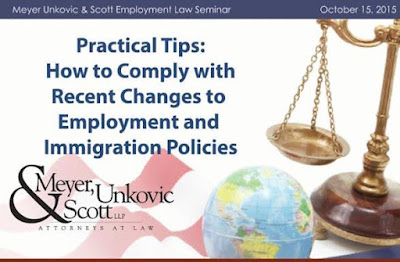On Monday, December 28, 2015, the IRS issued Notice 2016-4. The Notice announced that the IRS extended the due dates for reporting the information required under Sections 6055 and 6056 of the Internal Revenue Code for the 2015 tax year as follows:
- the due date for furnishing to individuals the 2015 Form 1095-B and the 2015 Form 1095-C is extended from February 1, 2016 to March 31, 2016; and
- the due date for filing with the IRS the 2015 Form 1094-B, the 2015 Form 1095-B, the 2015 Form 1094-C, and the 2015 Form 1095-C is extended from February 29, 2016 to May 31, 2016 (the electronic filing deadline is also extended from March 31, 2016 to June 30, 2016).
The IRS indicated that it is prepared to accept the filing of these information returns, but decided to extend the deadlines for 2015 only following consultation with stakeholders that caused the Service to conclude that employers and other coverage providers needed additional time to take the necessary actions to report this information. The IRS explicitly encouraged employers and other coverage providers to furnish the statements and file the information returns as soon as they are ready.
The IRS further indicated that, for 2015, it was suspending the provisions regarding automatic and permissive extensions of time for furnishing these forms to individuals and filing them with the Service. In other words, the extended deadlines for 2015 cannot be further extended. The IRS encourages employers and other coverage providers not meeting the extended deadlines to nevertheless furnish and file the forms, and indicated that the Service would take such actions into consideration when determining whether to abate penalties for reasonable cause.
The Notice also provided limited transition relief to individual taxpayers that file their 2015 tax returns before receiving either their 2015 Form 1095-B or 2015 Form 1095-C and whose eligibility for a premium tax credit was affected as a result of the extension.
Please contact us if you have any questions or concerns.
For more information about this announcement and other employee benefi ts law matters, contact Jason Mettley, Richard Kennedy, Levi Logan, or any other Meyer, Unkovic & Scott attorney with whom you have worked.































